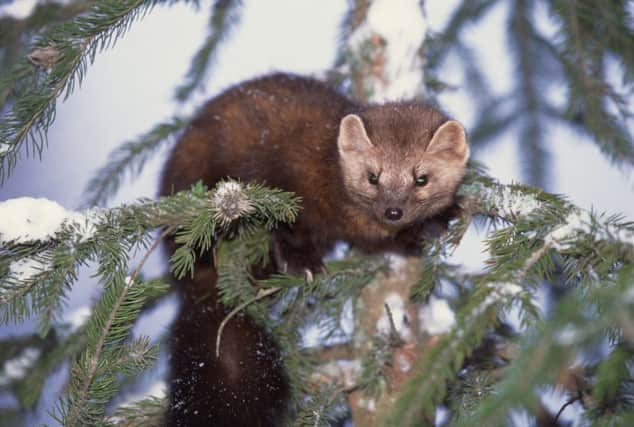Ilona Amos: Picking your favourite mammal could help it to survive


Mammals deliver a variety of benefits to the environment. Many of the smaller creatures are ecologically important as a link in the food chain, acting as prey for birds and mammalian carnivores. Meanwhile large mammals help maintain high-biodiversity habitats through the effects of grazing.
Worryingly, though, almost two thirds of all our mammal species have declined over the past half a century. Some have been suffering particularly alarming drops in their populations and have become so elusive they have taken on an almost mythical status. For these in particular we need an urgent stepping up of conservation efforts.
Advertisement
Hide AdAdvertisement
Hide AdIt’s against this background that the Royal Society of Biology (RSB), one of the country’s leading professional associations, has launched a campaign to discover the country’s favourite mammal. It’s hoped that raising awareness of some of our threatened animals will motivate people to take action and help ensure their long-term survival.
With the help of experts from the Mammal Society and People’s Trust for Endangered Species, RSB researchers have managed to whittle the 101 species down to 10 for us to choose from. They are the pine marten, water vole, red squirrel, beaver, red fox, hedgehog, bottlenose dolphin, Scottish wildcat, otter and soprano pipistrelle bat.
RSB member Professor David Macdonald, director of the Wildlife Conservation Research Unit at the University of Oxford, describes it well when he says each species, large or small, is a cog in nature’s system.
Many of the shortlisted creatures have their stronghold in Scotland. The Moray Firth and Cromarty Firth are home to the world’s most northerly resident population of bottlenose dolphins, while only a handful of pine martens and red squirrels live south of the border and the clue is in the name for the Scottish wildcat.
But these iconic animals are not faring well. They face myriad threats, from the impacts of global warming to pollution, the spread of urbanisation, intensification of agriculture and an influx of alien diseases.
We have already lost a whole host of native beasts over the past 12,000 years. Everything from mammoths and woolly rhinos to wolves, bears and cave lions roamed these lands in times gone by, and there is even talk of bringing some of them back.
I admit, despite any evidence to the contrary, I haven’t been around quite long enough to have spotted lynx or wolverines in person while growing up in the Highlands. However, we do have the benefit of hindsight so it would be good if we could heed the warnings and help save the amazing creatures we do have before they vanish from our shores – and maybe the planet.
I’m not sure how much direct impact campaigns like this one actually have, but it certainly can’t hurt. And if nothing else it’s a bit of fun. I’m going to pick our native wildcat, also known as the Highland tiger, which is in serious peril. That’s bit predictable since big cats are the global favourites apparently. But you can go for something different.